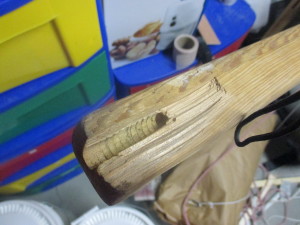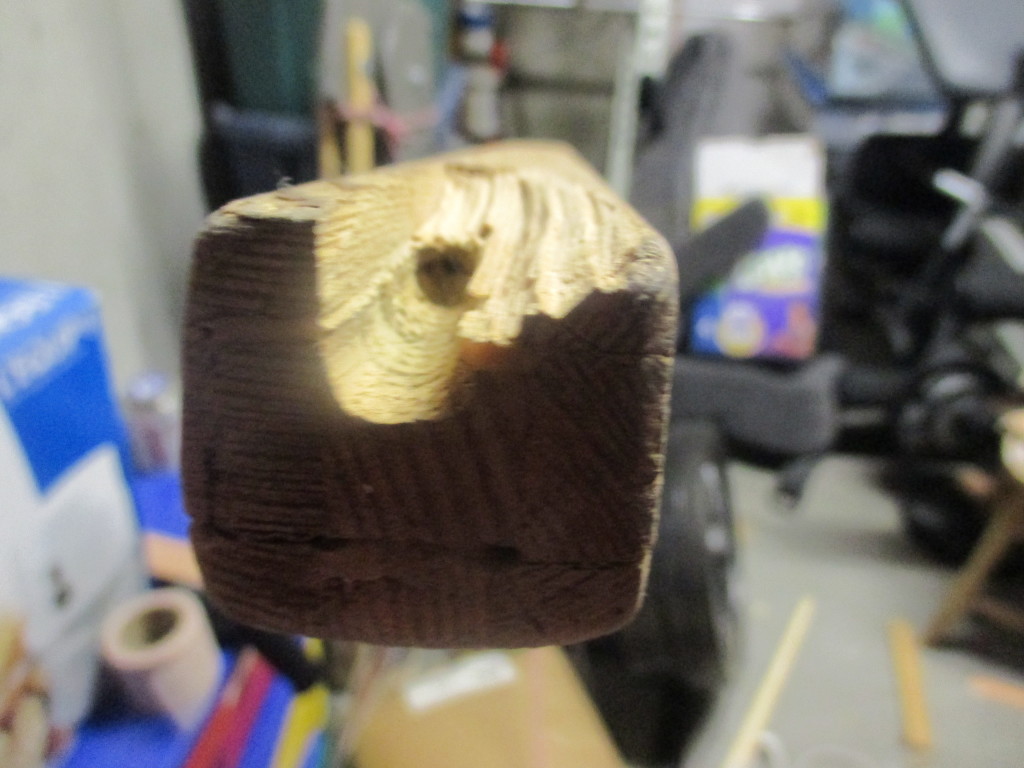As I mentioned in my article on the camping trip to Scofield Reservoir, I broke the top fitting on my mast in the trailer on the way up to the camp site. It was, of course, my own fault. I was in too big a hurry packing up the trailer. We were behind schedule and we had a lot of gear and boys to get on the road. The lag screw on the top of the mast simply wasn’t designed to have those sorts of unequal forces applied to it. I spent a bit of time trying to decide how I was going to fix the mast (or maybe make a new one), and then I decided that the thing to do was to fix the mast the same way I fix all of the problems that I have had with Nephi’s Courage, use more Titebond II!
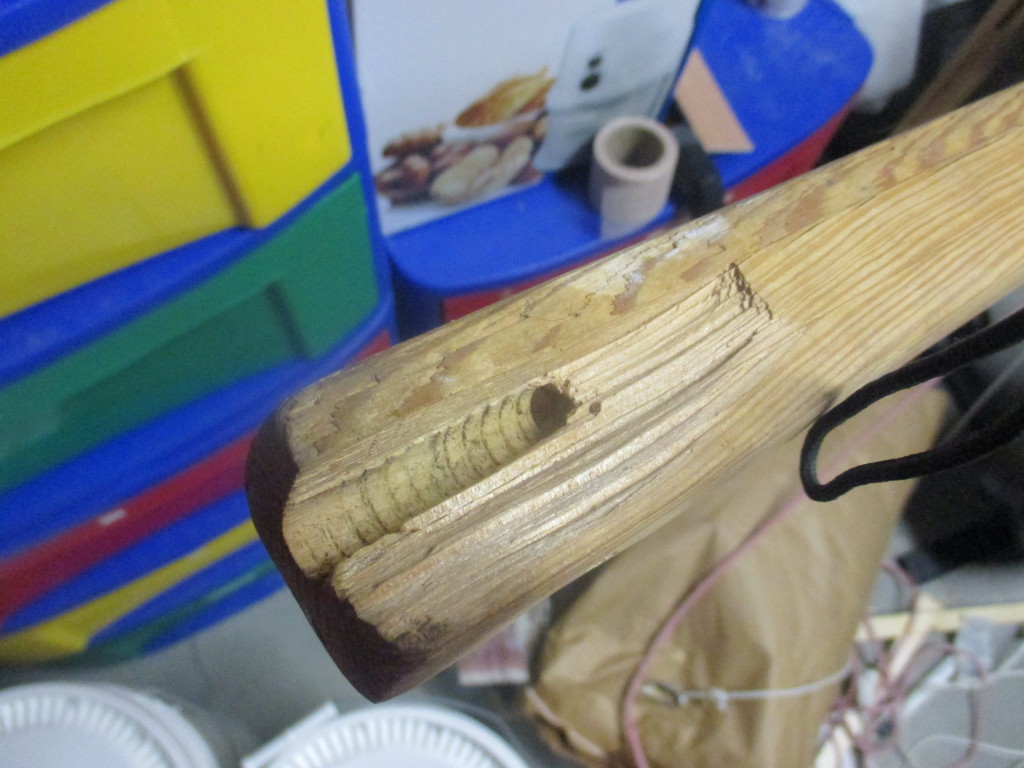
To that end I mixed up a bit of sawdust, whole wheat flour (I think you can see my wheat grinder in some of the pictures, and Titebond II. I wasn’t sure at first whether I should glue the lag screw in place, or if I should repair the mast and then drill out a new hole. In the end gluing the screw in place seemed easiest, so I buttered it up with glue and put it back into place. Then I covered up the hole with my glue and thickener mixture.
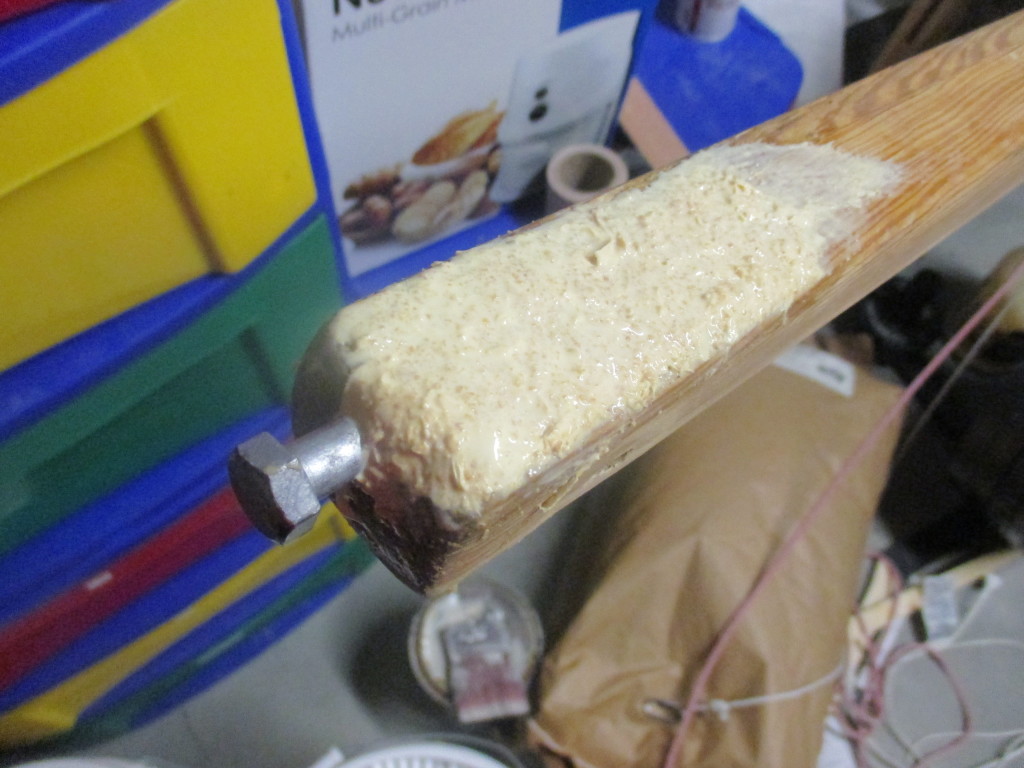
Finally, after the glue had set up for a day I washed it good with water to make it a bit porous again. I did this because I believe it should help it make a chemical instead of merely a mechanical bond. Then I wrapped the whole thing in drywall tape and slathered that with more glue. After a week or so of waiting for the glue to cure it actually seems pretty solid.
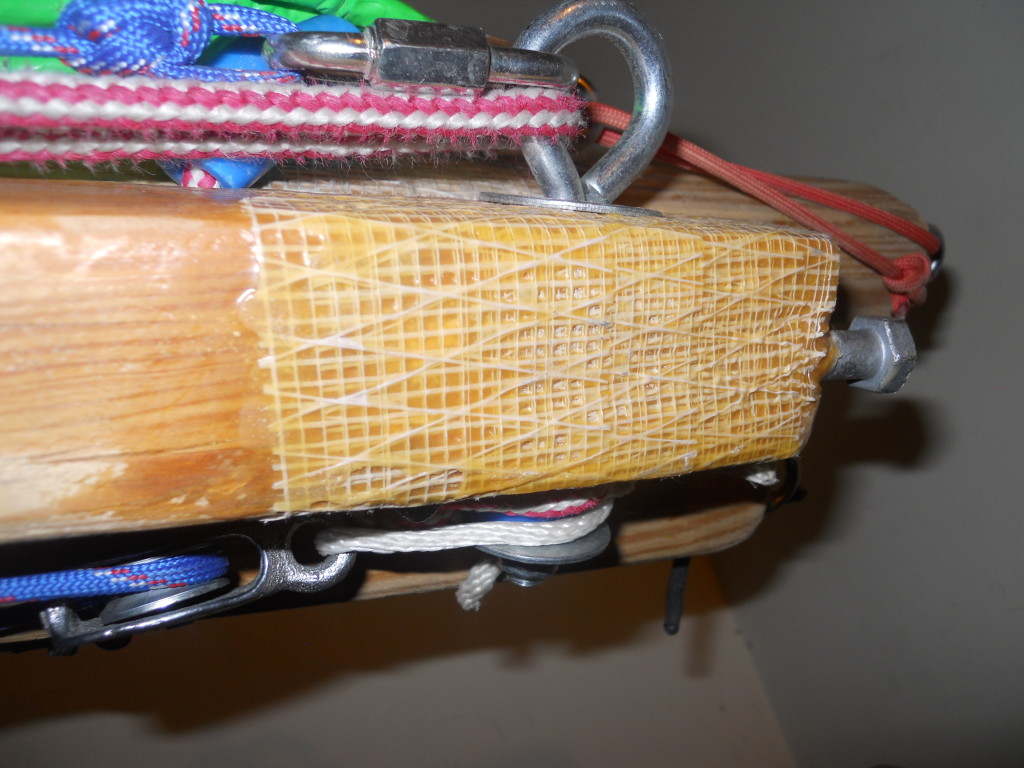
It is getting late in the year, but I plan on at least one more day of sailing before the water gets hard. Hopefully the mast will give me that much time. If worse comes to worst I already know that I can balance the boat fine with just the main sail and without standing rigging. If it fails dramatically, then I will probably try my hand at making a coopered mast this winter. I think that it is going to be fine though.
On a somewhat related note I have been experimenting with a way of stowing the mast and spars so that I can keep the rigging mostly together. Preliminary tests show that doing so basically shaves nearly 30 minutes off both set up and take down time. That’s almost an hour of extra sailing. If you look closely at the picture above you can see the boom and gunter tucked up behind the mast. You can also see that the main halyard and the topping lift are still attacked, as all all of the sail ties (well, you can’t really see the sail ties, so you will have to take my word for it).
I hope to write an in depth article about how the boat is rigged this winter. In the mean time it is too much fun actually sailing.
Do you want to know more? I have now written Part II.
